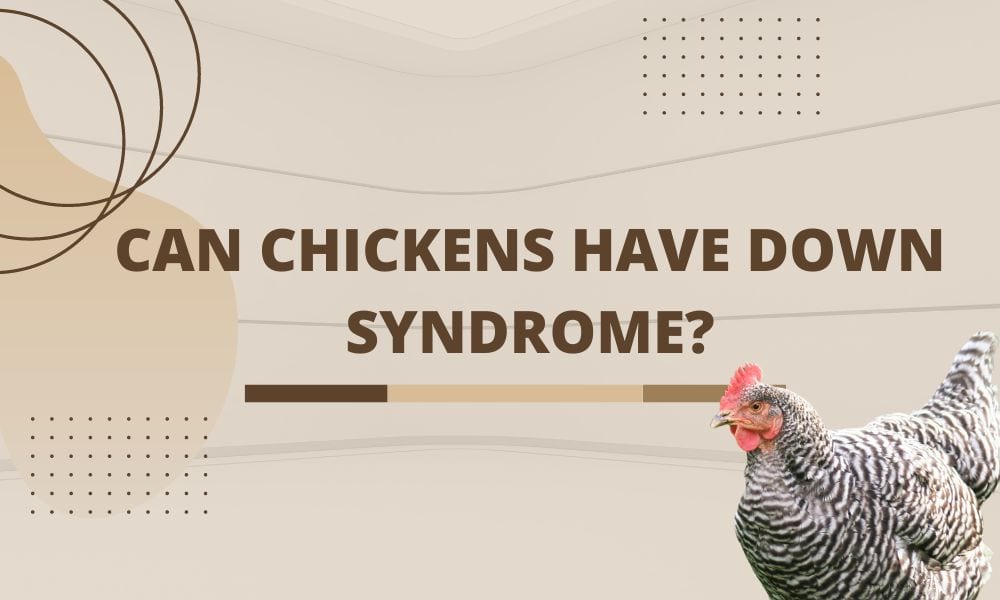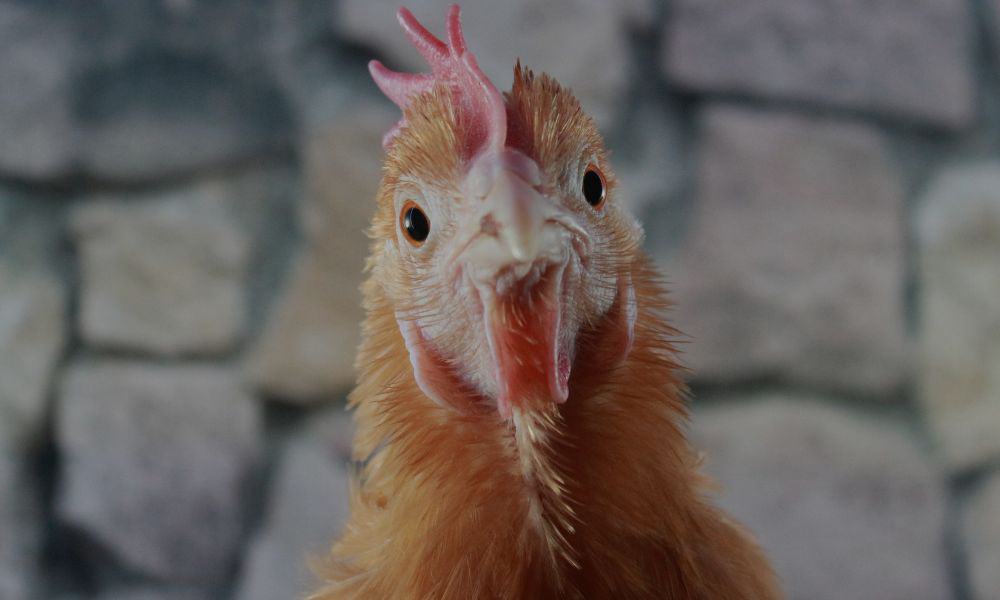One of the wonders of owning chickens is experiencing just how unique their individual personalities can really be!
Some are quiet, timid, and friendly, others can be a bit more skittish and reserved. Some are derpy and some seem to have a keen intellect.
But, have you ever wondered if chickens can be impacted by genetic disorders, such as Down Syndrome?
Although it sounds a bit quirky, it’s certainly not an uncommon question.
Here’s whether chickens can have Down Syndrome, what other disorders chickens can have, and how you can care for chickens with genetic disorders or disabilities
Contents
Can Chickens Have Down Syndrome?

Although some chickens can be impacted by genetic abnormalities, Down Syndrome is not one of them.
Down Syndrome is a genetic disorder that’s specific to humans, as it’s caused by an additional chromosome 21 leading to a total of 47 chromosomes in their genetic makeup, as opposed to 46 (23 pairs)
Chickens, on the other hand, have 39 pairs of chromosomes, having a total of 78. As well as this, the actual genetic makeup is completely different from those of humans.
Therefore, even though chickens can be born with SOME genetic abnormalities, chickens cannot have Down Syndrome.
Common Poultry Diseases & Disorders Often Confused With Down Syndrome
Of course, the extent of genetic abnormalities is much less studied and documented compared to humans.
Still, there are some common genetic abnormalities and other diseases that chickens CAN be born with or develop that are commonly confused with Down Syndrome.
These include:
-
- Runting & Stunting Syndrome (RSS) – Also known as “frozen chicken”: significantly slower growth and lower body weight).
- Avian Leukosis: Leukaemia-like disease in chickens, normally occurs in chickens over four months old causing tumor growth in many areas of the body.
- Marek’s Disease: An unfortunately common disease caused by a virus that can affect an animal (including chickens) for life. It normally causes chickens to become paralyzed in the legs, fall over often, or develop tremors.
Other Disabilities Chickens Can Have

A hard lesson any new chicken owner has to come to terms with: chickens are vulnerable creatures!
Unfortunately, it’s likely you will have to accept and deal with some kind of issue in chickens, whether it’s sickness, loss of life, or disability.
Some common disabilities chickens can either be born with or develop are:
-
- Crossed Beak (Scissor Beak): can be caused by several deficiencies, or a deformity at birth.
- Curled Toes: Most commonly caused by a vitamin B2 deficiency.
- Dislocation Of The Joints.
- Wry Neck: Vitamin B1 or Thiamine deficiencies, of a genetic tendency.
- Perosis: Issues with the joints in their legs, causing them to stick out at unusual angles.
How To Care For Chickens With Genetic Abnormalities Or Disabilities
There are two strategies you can adopt to best take care of any chickens with genetic abnormalities or disabilities:
- You can try to treat the condition
- You can adapt their lifestyle to cater to their abilities.
Treatment Options
If your chicken seems healthy and happy, but has some minor deformities (most commonly in their knees, toes, necks, or other joints), then the first point of treatment should always be trying to address any potential vitamin deficiencies.
Many of these deficiencies stem from Vitamin B (curled toes, wry neck, etc.), but a deficiency in any important mineral or vitamin can have pretty widespread effects.
If you can’t determine exactly which deficiency it may be, then you always go the extra mile and ensure they are having them all through any poultry vitamin supplement.
Adapt Their Lifestyle
If your chicken has some disability or deformity, it can still live long, healthy, and fulfilling lives.
If there is any change you can make to make their lives easier it’s always worth doing!
Chickens & Down Syndrome: Common Myths & Misconceptions
The internet can be a weird but wonderful place. Unfortunately, though, myths and misconceptions can spread like the Avian Flu!
One such myth is that chickens can have Down Syndrome when in reality people have just quickly labeled it as such due to the observation of different physical or behavioral characteristics.
These claims are never based on scientific fact and tend to be the product of a misunderstanding of what Down Syndrome really is!
In Summary
Simply put, there’s no chance a chicken can have Down Syndrome. We just don’t share the same genetic make-up with them!
However, chickens can still be born with genetic disabilities. Plus, due to their vulnerable nature, they can quite easily develop vitamin deficiencies which can physically distort or disable them too.
If it’s something your chicken has recently developed, try to provide additional vitamins and nutrients to help stabilize or reverse the deficiency.
If it’s something your chicken has been born with, try to adapt their lifestyle so they can still function as normally as possible!
In some instances, things are just not going to work out. But, that’s the circle of life and it’s something that we chicken owners have to expect on our chicken-raising journeys!
